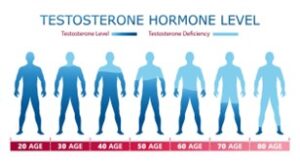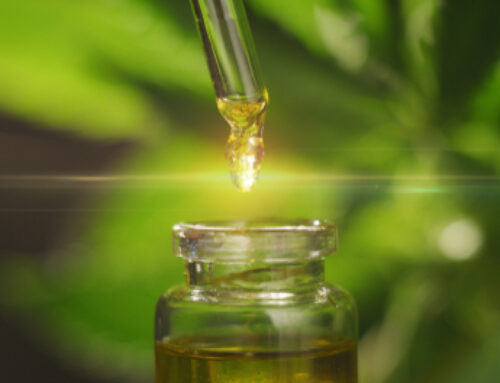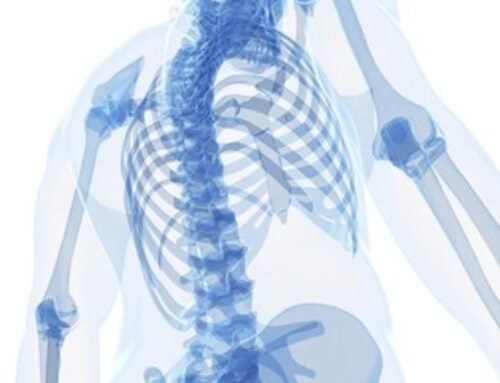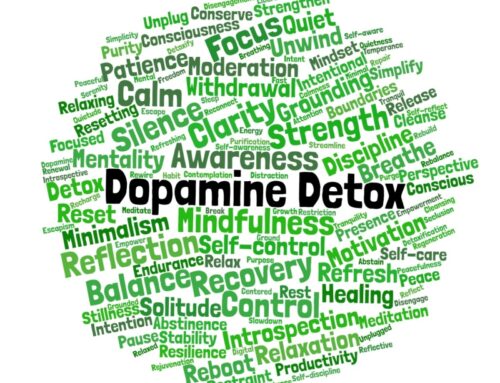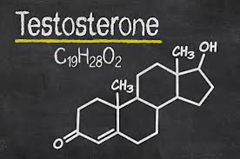 Valentine’s Day is just around the corner and often it has us thinking about hormones. If you feel like you’ve lost that lovin’ feelin’, maybe you need to pay attention to your testosterone levels? The most important hormone for health, vitality, body composition, and libido for both men and women is testosterone. Low testosterone can lead to fat gain, muscle loss, physical weakness, lowered sex drive, and disrupted sleep cycles. Many men and women have clinical and subclinical low testosterone levels impacting their quality of life. Studies show that up to 20% of men have low testosterone and that women may be only slightly less affected. Fortunately, raising testosterone levels can be done by anyone willing to implore a few simple steps.
Valentine’s Day is just around the corner and often it has us thinking about hormones. If you feel like you’ve lost that lovin’ feelin’, maybe you need to pay attention to your testosterone levels? The most important hormone for health, vitality, body composition, and libido for both men and women is testosterone. Low testosterone can lead to fat gain, muscle loss, physical weakness, lowered sex drive, and disrupted sleep cycles. Many men and women have clinical and subclinical low testosterone levels impacting their quality of life. Studies show that up to 20% of men have low testosterone and that women may be only slightly less affected. Fortunately, raising testosterone levels can be done by anyone willing to implore a few simple steps.
What does testosterone influence?
Testosterone has a major impact on the body of both men and women. It is the hormone that is most responsible for maintaining muscle mass and our ability to burn body fat. It is the fuel for your metabolism. It also protects the heart by enhancing nitric oxide production. This allows the blood vessels to relax creating less resistance to blood moving through them causing less work for the heart.
Testosterone does so much more though than just help the muscles of the body. Low testosterone is thought to contribute to depression, low mood, and poor cognitive function. Testosterone also accelerates nerve regeneration, which may improve memory and executive function in the aging brain. Testosterone plays a vital role in bone repair and growth. Higher testosterone is one reason men tend to have stronger bone density than women and are at much lower risk of osteoporosis as they age.
The aging process takes its toll on the libido of both men and women. Women particularly see major changes during and after menopause that appear to have a major correlation with a drop in testosterone. Men, who notoriously have much more testosterone, are not immune to this age related drop and likewise may notice changes in their libido as well. What many people may refer to as stress, fatigue, or age related changes in their libido, may be due to lower testosterone levels.
What Causes Low Testosterone?
The trifecta of symptoms that make up “The Metabolic Syndrome” obesity, high blood sugar, and high blood pressure are frequently associated with low testosterone. Obese men have been shown to have 25 to 45 percent lower testosterone levels than average-weight males. When body fat levels increase, more testosterone is attached to sex hormone-binding globulin (SHBG), a carrier protein that renders it unusable by the body. Fat tissue also increases levels of aromatase, the enzyme that changes testosterone to estrogen—a hormone that is linked with increased body fat in men and women.
Likewise, high blood sugar lowers testosterone. When insulin goes up, testosterone goes down. This combination predisposes you to gain fat, especially around the belly. Belly fat impairs the message of other metabolic hormones, such as leptin whose job it is to moderate appetite. At the same time, the body’s primary fat burning enzyme, HSL (Hormone-Sensitive Lipase), plummets and the body is stuck in fat storage mode. This is why exercise is so important. Not only does it keep body fat levels low it helps to maintain optimal testosterone levels.
When it comes to the association of high blood pressure and low testosterone, the odds of having low testosterone were 1.8 times higher in men who had high blood pressure. Low testosterone appears to reduce the body’s ability to produce nitric oxide, an important element in blood vessel dilation. This same dysfunctional pathway creates the correlation of low testosterone, high blood pressure, and erectile dysfunction.
How to naturally increase testosterone:
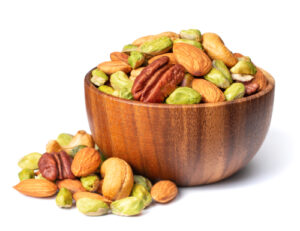 Most men and women who eat a standard western diet are not getting the nutrition for robust testosterone production. Zinc is necessary for release of luteinizing hormone—the precursor to testosterone. Both magnesium and vitamin D have anti-aromatase action, preventing testosterone from turning into estrogen. A shift to a nutrient-rich, whole foods diet to supply the nutrients necessary for metabolic function and testosterone release is a great place to start. Don’t overwhelm yourself with trying to make major changes too fast. Simply start to add some healthier foods to your daily routines. Begin with snacking on a healthy nut mixture. The zinc combined with the healthy fats in nuts are great for testosterone production. Even with an increase in dietary zinc you may want to consider a zinc supplement. It is an easy and very effective way to increase your zinc levels.
Most men and women who eat a standard western diet are not getting the nutrition for robust testosterone production. Zinc is necessary for release of luteinizing hormone—the precursor to testosterone. Both magnesium and vitamin D have anti-aromatase action, preventing testosterone from turning into estrogen. A shift to a nutrient-rich, whole foods diet to supply the nutrients necessary for metabolic function and testosterone release is a great place to start. Don’t overwhelm yourself with trying to make major changes too fast. Simply start to add some healthier foods to your daily routines. Begin with snacking on a healthy nut mixture. The zinc combined with the healthy fats in nuts are great for testosterone production. Even with an increase in dietary zinc you may want to consider a zinc supplement. It is an easy and very effective way to increase your zinc levels.
Sleep problems and stress affect your Hypothyroid-Pituitary-Adrenal Axis that regulates hormones. This triggers an increase in the hormone cortisol and a subsequent drop in testosterone. Lack of sleep also raises glucose levels, negatively affecting metabolic function and decreasing testosterone. Sleep needs vary from person to person. The key is to make sure the time you spend snoozing is restful. A bedtime ritual, a dark, electronics-free bedroom, and melatonin supplementation are all tools to promote a good night’s rest. Remember the adrenals are the source of about 25 percent of testosterone and they can get depleted in response to poor sleep and chronic stress. Managing these two areas is key to optimal testosterone production.
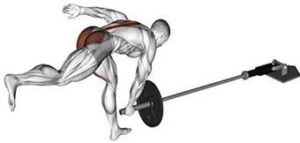 Exercise and testosterone are highly linked. Too little exercise or too much can both create testosterone problems. Low testosterone and elevated cortisol are a hallmark of extreme endurance athletes. The combination often leads to low muscle and bone mass. It’s also associated with reduced strength and power. Running a few miles a few days a week is unlikely to cause a problem, but high volume training, such as that performed by marathoners, triathletes, and even serious CrossFitters may lead to hormone imbalances and reduced testosterone. Dial back on training volume to lower cortisol and restore testosterone. Substituting strength training or sprinting for long distance running may also help. Both have been shown to increase release of testosterone, while improving regulation of the HPA axis. These types of workouts often exceed lactate threshold and produce greater amounts of testosterone and metabolic enzymes.
Exercise and testosterone are highly linked. Too little exercise or too much can both create testosterone problems. Low testosterone and elevated cortisol are a hallmark of extreme endurance athletes. The combination often leads to low muscle and bone mass. It’s also associated with reduced strength and power. Running a few miles a few days a week is unlikely to cause a problem, but high volume training, such as that performed by marathoners, triathletes, and even serious CrossFitters may lead to hormone imbalances and reduced testosterone. Dial back on training volume to lower cortisol and restore testosterone. Substituting strength training or sprinting for long distance running may also help. Both have been shown to increase release of testosterone, while improving regulation of the HPA axis. These types of workouts often exceed lactate threshold and produce greater amounts of testosterone and metabolic enzymes.
Supplementation
Certain key nutrients have a powerful impact on hormone balance, we have already mentioned a few. Eating a clean nutrient dense diet can improve deficiencies in these key minerals and amino acids. However, even the healthiest diet can use some assistance. Below are the supplements that I would focus on to support testosterone production.
Vitamin D
 Vitamin D plays multiple roles in helping to regulate testosterone: Not only does it help inhibit aromatase, this pro-hormone enhances the sensitivity of cell receptors that release testosterone. Supplementation has been shown to overcome testosterone deficiency in men.
Vitamin D plays multiple roles in helping to regulate testosterone: Not only does it help inhibit aromatase, this pro-hormone enhances the sensitivity of cell receptors that release testosterone. Supplementation has been shown to overcome testosterone deficiency in men.
Studies show that a consistent regiment of Vitamin-D supplementation of 1,000-5,000 IUs of Vitamin-D daily can improve testosterone by 20% with men over the age of 40 who previously had low testosterone levels. Because Vitamin-D is mostly made from our skin’s reaction to sunlight, Vitamin-D levels are the lowest on average from January through May in North America. Supplementation during this time period is highly recommended.
L-Arginine
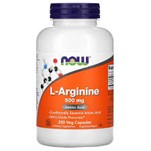 L-arginine is an amino acid that not only can improve testosterone levels, but it also can help fight some of the common symptoms of low testerone. L-Arginine is converted in the body into a chemical called Nitric Oxide. Nitric Oxide causes blood vessels to open wider for improved blood flow. L-arginine also stimulates the release of growth hormone, insulin, and other substances in the body.
L-arginine is an amino acid that not only can improve testosterone levels, but it also can help fight some of the common symptoms of low testerone. L-Arginine is converted in the body into a chemical called Nitric Oxide. Nitric Oxide causes blood vessels to open wider for improved blood flow. L-arginine also stimulates the release of growth hormone, insulin, and other substances in the body.
L-arginine can be obtained from the diet and be found in red meat, poultry, fish, and dairy products. When used as a supplement, large amounts of L-Arginine can improve conditions related to heart and blood vessels. This includes congestive heart failure (CHF), chest pain, high blood pressure, and coronary artery disease. L-arginine is also used for recurrent pain in the legs due to blocked arteries (intermittent claudication), decreased mental capacity in the elderly (senile dementia), erectile dysfunction (ED), and male infertility.
L-arginine is not just a male supplement. Women report enhanced fat loss, improved blood flow to extremities, and increased libido when taking L-arginine. Tip: Try taking a dose of 2-6g of L-arginine in the morning, before and after a workout, and/or before sexual activity.
L-Citrulline
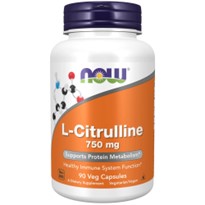 L-citrulline is a substance called a non-essential amino acid. Your kidneys change L-citrulline into L-arginine and a chemical called nitric oxide. These compounds are important to your heart and blood vessel health. They may also boost your immune system. People use L-citrulline for athletic performance, sickle cell disease, erectile dysfunction (ED), high blood pressure, fluid in the lungs, heart disease, and many other conditions.
L-citrulline is a substance called a non-essential amino acid. Your kidneys change L-citrulline into L-arginine and a chemical called nitric oxide. These compounds are important to your heart and blood vessel health. They may also boost your immune system. People use L-citrulline for athletic performance, sickle cell disease, erectile dysfunction (ED), high blood pressure, fluid in the lungs, heart disease, and many other conditions.
The combination of L-arginine with L-citrulline supplementation has been a proven combination to boost testosterone and reduce the effects of low testosterone. The mechanism is not quite known but it is theorized that taking L-arginine and L-citrulline together is a double barreled approach that is more effective than either of the supplements taken alone.
Ashwagandha
 Ashwagandha (Withania somnifera) is an herb that is extensively used in Ayurveda, the traditional herbal system in India. Ashwagandha is used as a general tonic and “adaptogen”, helping the body adapt to temporary, normal stress. In addition, preliminary data suggest that ashwagandha supports a healthy immune system. Much of the reported benefits of ashwagandha come from its rich concentration of withanolides. Withanolides are a type of compound (specifically steroidal lactones) that can perform a wide range of potential physiological effects. Studies have particularly looked at the potential for withanolides in ashwagandha to reduce inflammation and inhibit tumor growth.
Ashwagandha (Withania somnifera) is an herb that is extensively used in Ayurveda, the traditional herbal system in India. Ashwagandha is used as a general tonic and “adaptogen”, helping the body adapt to temporary, normal stress. In addition, preliminary data suggest that ashwagandha supports a healthy immune system. Much of the reported benefits of ashwagandha come from its rich concentration of withanolides. Withanolides are a type of compound (specifically steroidal lactones) that can perform a wide range of potential physiological effects. Studies have particularly looked at the potential for withanolides in ashwagandha to reduce inflammation and inhibit tumor growth.
What ashwagandha is really known for is reducing stress. Ashwagandha is often classified as an adaptogen, which basically refers to herbal pharmaceuticals that help to reduce stress and stress’ potential effects on the body, including the production of the stress hormone cortisol. High stress, particularly oxidative stress, can affect libido and sperm quality, and cortisol may potentially interfere with testosterone levels and functions. Along with reducing stress, ashwagandha may reduce symptoms associated with anxiety.
In terms of testosterone and hormonal balance, ashwagandha has shown promise in supporting testosterone levels. In a study involving men aged 40 to 70, subjects given a supplement of ashwagandha extract showed an increase in testosterone by about 15 percent on average and an 18 percent increase in DHEA (a hormone that helps produce other hormones, including testosterone). The results were greater among the men who completed the full 16-week study. Additionally, in a double-blind study, subjects given a supplement of ashwagandha root extract twice per day had significant improvements in muscle strength, size, and recovery. The supplement also seemed to boost testosterone levels, which were about five times higher than those in the placebo group. Both groups also underwent resistance training programs.
Some studies also suggest that ashwagandha root may help with forms of infertility in men. For example, one study found that ashwagandha improved the count, motility, and quality of semen. A similar study found that ashwagandha root powder supplementation improved the semen quality of men with stress-related infertility issues. However, it’s important to note that improving fertility is not necessarily the same as boosting testosterone.
Conclusion:
Raising testosterone and combating the aging process is not an easy task. Lifestyle factors associated with our society are often to blame for this difficulty. The combination of a high stress, low sleep, fast food lifestyle appears to be the American way. Unfortunately, the results of this lifestyle can be devastating. At [Core] we strive to be a stalwart in the face of this storm. We want to be there with you in this fight and see you become healthier than you have ever been.


